Explore web search results related to this domain and discover relevant information.

SINGAPORE/LONDON, Sept 8 (Reuters) - The yen eased on Monday after Japanese Prime Minister Shigeru Ishiba announced his resignation over the weekend, while the dollar was on shaky ground as Friday's weak U.S.
Banknotes of Japanese yen are seen in this illustration picture taken September 22, 2022.The yen weakened sharply in Asia trade, leaving the dollar up by as much as 0.78% at one point before steadying to trade with a 0.26% gain on the day at 147.77 .The Japanese currency similarly slid to its lowest in more than a year against the euro , which rose 0.3% on the day to 173.25 yen.The yen hardly reacted to data on Monday showing Japan's economy expanded much faster than initially estimated in the second quarter.
One major factor affecting Japan's trade balance is the rising cost of energy imports. Japan relies heavily on imported oil and natural gas, and a weaker yen makes these imports more expensive. Yen's decline has also led to higher costs for businesses and consumers, increasing Japan's trade deficit.
Interest rate differentials are crucial in currency valuation as investors move capital to countries offering higher returns. Thus, the yen has become less attractive to international investors due to its historically low interest rates.For instance, when the Federal Reserve raises interest rates, U.S. Treasury bonds become more appealing to investors seeking stable returns. As capital flows into U.S. assets, the demand for the dollar strengthens while the yen weakens.Japan's trade balance has historically affected the strength of the yen. For decades, Japan was known for running trade surpluses due to its strong export-driven economy, particularly in automobiles, electronics, and machinery.One major factor affecting Japan's trade balance is the rising cost of energy imports. Japan relies heavily on imported oil and natural gas, and a weaker yen makes these imports more expensive. Yen's decline has also led to higher costs for businesses and consumers, increasing Japan's trade deficit.

The weakness of the Japanese currency is back in the spotlight after sinking to its lowest level since April 1990.
The weakness of the Japanese yen is in the spotlight again after its latest tumble in value.The yen recovered to 155.01 per dollar later in the day, prompting speculation that Japanese authorities had intervened to prop up the value of the currency.The yen weakened slightly again on Tuesday, but held onto most of the previous day’s gain.At the moment, investors are being driven to offload the yen due to a yawning gulf in interest rates between Japan and the United States.
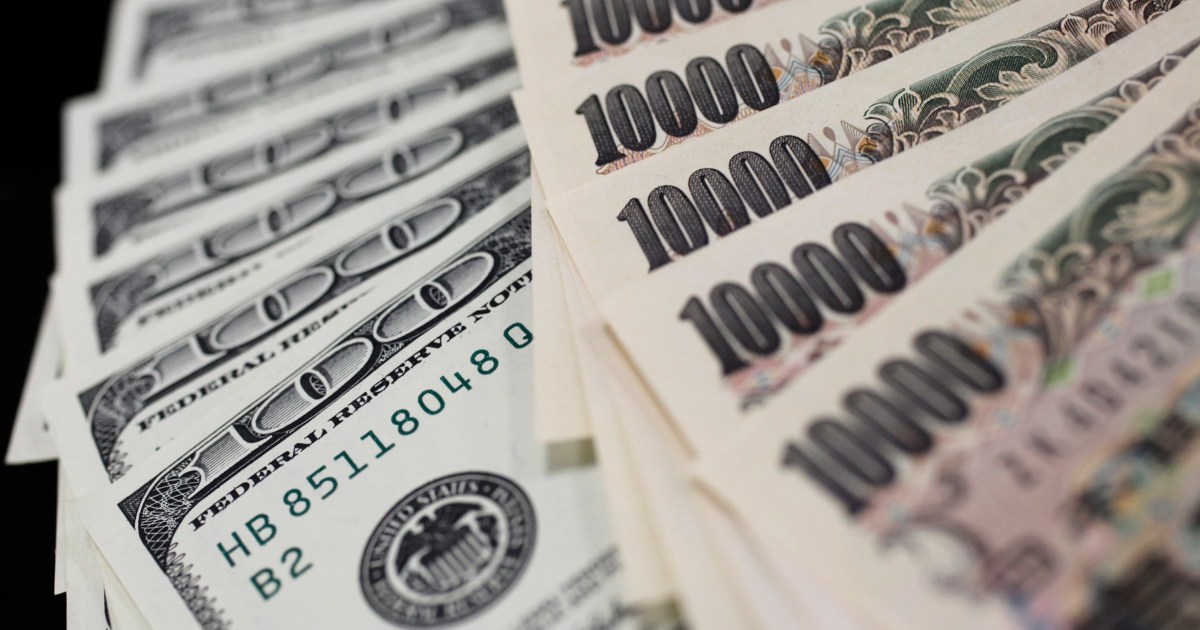
The Japanese Yen (JPY) struggles to capitalize on its recovery from a one-month trough touched against its American counterpart the previous day and oscillates in a narrow range during the Asian session on Thursday.
The Japanese Yen (JPY) struggles to capitalize on its recovery from a one-month trough touched against its American counterpart the previous day and oscillates in a narrow range during the Asian session on Thursday. Market participants remain divided over the likely timing and pace of Bank of Japan (BoJ) rate hikes amid tariff-related uncertainties.Meanwhile, investors continue to bet that the BoJ could raise rates before year-end on the back of firm wage growth, still sticky inflation, and a brighter economic outlook. This, in turn, acts as a tailwind for the Japanese Yen during the Asian session on Thursday, though domestic political uncertainty caps the overnight recovery from a one-month low touched the previous day.The Japanese Yen lacks any firm intraday directional bias on Thursday amid mixed cues.The Bank’s massive stimulus caused the Yen to depreciate against its main currency peers.
Why has the Japanese yen been declining in value so rapidly and extensively? -> ALL the factors in play, e.g. US interest rate, world political…
Posted by u/happyfacetuuic - 0 votes and 37 commentsUS inflation report came back with inflation still being above target in the US which makes it unlikely that the fed will cut rates. Plenty of investors were counting on a couple of rate cuts this year and that seems unlikely now so the yen is hurting more as a result.Would you recommend storing a salary in yen or USD? I don't plan on staying here long-term, only for the next few years. I feel like I'd rather convert a lot of my salary (e.g. when I get paid this month) into USD now... instead of doing it at a potential later point like when it's at 170 or something, at which time I'd get even less.Investment and financial decisions are surprisingly behavioral, IMO. And there isn't a scientific answer here, but, you could try taking a portion of your salary and buying USD each month. In my case, I am just going to hoard the yen but I am a permanent resident, old, and have USD holdings in the US as well.

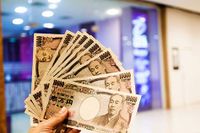
The Japanese yen declined in the Asian market on Thursday against a basket of major and minor currencies, resuming losses that had paused temporarily yesterday against the U.S. dollar, on its way again toward the lowest level in five weeks, due to the growing concerns currently about the political ...
The Japanese yen declined in the Asian market on Thursday against a basket of major and minor currencies, resuming losses that had paused temporarily yesterday against the U.S. dollar, on its way again toward the lowest level in five weeks, due to the growing concerns currently about the political situation in Japan, the world’s fourth largest economy.•The yen ended Wednesday’s trading up by 0.2% against the dollar, in its first gain in the last four days, within a recovery move after earlier hitting the lowest level in five weeks at 149.14 yen, due to the acceleration of open selling operations.•Kit Juckes, chief FX strategist at Société Générale, said: “On the surface, political uncertainty, and the possibility of Prime Minister Shigeru Ishiba resigning in the coming days or weeks, negatively affects the yen.”•Lee Hardman, senior currency analyst at MUFG, said: “The aggravation of political uncertainty is likely to remain a barrier, while the absence of a hawkish signal from Deputy Governor Ryuzo Himino on Tuesday will encourage speculators to continue rebuilding short yen positions.”
4.9K votes, 532 comments. 23M subscribers in the explainlikeimfive community. Explain Like I'm Five is the best forum and archive on the internet for layperson-friendly explanations. Don't Panic!
Posted by u/Legal_Citron_9304 - 4,932 votes and 532 commentsWomen in Japan (who traditionally are in charge of the family finances) started taking advantage to borrow money at almost no interest and invest it in foreign currencies waiting for the Yen to devalue, then would sell it to make money.Great post, I must add something: Japan and its foreign investment trends 'Mrs Watanbe' it's more than a gender thing. 'Mrs Watanbe' it's a well known investment trend in the JPY/MXN JPY/BRL pairs. They borrow in yens to purchase BRL or MXN for spread gains, always in short therms.I'd let someone else correct me if they think I am wrong but I also thing that it's a country where for cultural reasons things tend to be priced fairly (based on making a honest profit, I guess) instead of more stringently following supply and demand. As an example, the Ghibli museum in Tokyo sells tickets for about 1000 yen, an extremely cheap price, despite demand being so high that people have to be on their website at a precise time when they're released if they want a chance of buying one.


SINGAPORE (Reuters) -The yen fell broadly on Monday following news that Japanese Prime Minister Shigeru Ishiba had resigned, while the dollar was nursing losses after tumbling on a weak U.S.
The yen slumped in response in early Asia trade on Monday, falling 0.7% against the dollar to 148.43.Concerns over political uncertainty prompted a selloff in the yen and Japanese government bonds (JGBs) last week, sending the yield on the 30-year bond to a record high.In other currencies, the dollar was recouping some of its heavy losses, helped in part by the yen’s weakness, after falling sharply on Friday on data that showed further cracks in the U.S."With the LDP lacking a clear majority, investors will be cautious until a successor is confirmed, keeping volatility elevated across yen, bonds and equities," said Charu Chanana, chief investment strategist at Saxo.

Japanese yen weakens as PM Ishiba resigns amid political pressure following electoral defeat, boosting USD/JPY.
With Prime Minister Ishiba’s resignation introducing significant political uncertainty, we should expect continued yen weakness. The immediate move in USD/JPY towards 148.25 is likely just the beginning of a larger trend driven by a lack of clear leadership.This political turmoil makes it very difficult for the Bank of Japan to act on recent economic data, which showed core inflation for August 2025 holding at a stubborn 2.8%. With the U.S. Federal Reserve funds rate steady at 4.75%, the wide interest rate difference that fuels the yen carry trade is now reinforced by this policy paralysis in Tokyo.Looking back, we saw a similar dynamic between 2022 and 2024, when a widening policy gap caused a historic slide in the yen. The current political instability removes a key source of government pressure that had been supporting the currency.The Japanese yen has weakened as the new week begins, influenced by Prime Minister Shigeru Ishiba’s resignation.
Though it recovered in the second half of the year, Japan’s economy barely grew in 2024 as a depreciated yen fueled inflation and strained households.
Though it recovered in the second half of the year, Japan’s economy barely grew in 2024 as a depreciated yen fueled inflation and strained households.The fragility of a more-than-yearlong stock rally in Japan, fueled in part by a weak yen, has been exposed by the sudden strengthening of the currency.Analysts and investors have many explanations, including worries about the health of the U.S. economy and shifts in the value of the Japanese yen.A rapidly strengthening yen and a sell-off in stocks in the United States pushed Japan’s markets to a second consecutive day of big losses on Friday.


The Entire Business World on a Single Page with the Web's Most Comprehensive One-Stop Finance News Hub.
bloomberg.com/news/articles/2025-09-07/yen-weakens-as-ishiba-departure-fuels-uncertainty-markets-wrap

Yen falls after PM Ishiba resigns; trade, oil, and currency markets shift amid global policy changes.
This political instability in Japan suggests the yen could remain weak in the medium term, even if the initial gap closes. We remember the market turmoil following Prime Minister Abe’s resignation back in 2020, which created lasting uncertainty.Finally, the decision by OPEC+ to increase oil output is a positive development for the yen, which is often weakened by high energy prices. As a nation that imports over 90% of its energy, lower crude costs ease pressure on Japan’s trade balance.The yen experienced a drop in the early hours on Monday in Asia.This could provide a fundamental floor for the yen and temper moves above the 150 level, a zone where we saw the Bank of Japan intervene with over $60 billion back in late 2022.
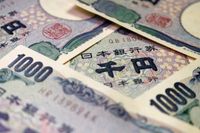
SINGAPORE--The yen fell broadly on Monday following news that Japanese Prime Minister Shigeru Ishiba had resigned, while the dollar was nursing losses after tumbling on a weak U.S. jobs report that cemented expectations for a Federal Reserve rate cut this month.
Banknotes of Japanese yen are seen in this illustration picture taken September 22, 2022.The yen slumped in response in Asia trade on Monday, falling 0.6% against the dollar to 148.25.Concerns over political uncertainty prompted a selloff in the yen and Japanese government bonds (JGBs) last week, sending the yield on the 30-year bond to a record high.The yen hardly reacted to Monday’s data, which showed Japan’s economy expanded much faster than initially estimated in the second quarter.
With low interest rates seen as a key factor in the rapid decline of the yen, last month the BOJ ended its policy of keeping its benchmark interest rate below zero, lifting its short-term policy rate from -0.1% to between zero and 0.1%.
The value of Japan’s currency has tumbled so much, that its value is back to where it was in 1990, shortly after Japan’s famous “bubble economy” burst. For a moment on Monday it was trading at 160 yen to US$1.With low interest rates seen as a key factor in the rapid decline of the yen, last month the BOJ ended its policy of keeping its benchmark interest rate below zero, lifting its short-term policy rate from -0.1% to between zero and 0.1%.After that decision, markets were then focused on the pace of further rate rises. On Friday, the BOJ announced it would hold interest rates steady, signalling that further increases weren’t imminent. This precipitated another round of selloffs in the yen, putting more pressure on the currency.In recent years, Japanese authorities have intervened to prop up the value of the currency, because a weak yen complicates its objective of achieving sustainable inflation, and strengthening it could help increase domestic consumption and local investment.

It is true that Fed hikes post-COVID moved rate differentials sharply against the yen, which coincided with the yen weakening. But it is also true that rate differentials explain a relatively limited portion of yen movements through history. Indeed, rate differentials fail to account for the ...
It is true that Fed hikes post-COVID moved rate differentials sharply against the yen, which coincided with the yen weakening. But it is also true that rate differentials explain a relatively limited portion of yen movements through history. Indeed, rate differentials fail to account for the sharp fall in the yen that has taken place year to date.Robin Brooks digs into the drivers of recent depreciation of the Japanese yen.This post—our fifth—focuses on the drivers of yen depreciation. Since we started publishing this blog in April, the yen has fallen sharply, sparking repeated official foreign exchange (FX) intervention to halt its decline. On a superficial level, recent yen depreciation is the product of monetary policy divergence, given that the Bank of Japan never joined the post-COVID hiking cycle.But—on a deeper level—the falling yen is really about Japan’s large debt burden, which forces the Bank of Japan to cap long-term government bond yields, preventing it from joining the global post-COVID tightening cycle. In effect, this transfers weak debt dynamics from the bond market to the currency.

The Japanese yen has been under pressure in the past few years as markets focused on the wide U.S.-Japan interest rate differentials. The yen lost more than 20% against the dollar since the outset of 2022, prompting several rounds of intervention by Tokyo to prop up the currency in September ...
The BOJ’s interest rate rise shook global markets and the Japanese currency. Here’s a look at how the central bank has influenced the yen over the yearsThe Japanese yen has been under pressure in the past few years as markets focused on the wide U.S.-Japan interest rate differentials. The yen lost more than 20% against the dollar since the outset of 2022, prompting several rounds of intervention by Tokyo to prop up the currency in September and October that year.It kept falling despite further intervention in April and May 2024, touching a 38-year low of 161.96 to the dollar on July 3. Japan is suspected to have stepped in again in mid-July to put a floor under the yen.The BOJ’s hawkish move, along with investors’ concerns about U.S. growth, jolted global stock and bond markets. It triggered an unwinding of the carry trade, whereby investors borrow cheaply in yen to invest in higher-yielding assets.

During the first half of the 1980s, the yen failed to rise in value, though current account surpluses returned and grew quickly. From ¥221 per US$ in 1981, the average value of the yen actually dropped to ¥239 per US$ in 1985. The rise in the current account surplus generated stronger demand ...
During the first half of the 1980s, the yen failed to rise in value, though current account surpluses returned and grew quickly. From ¥221 per US$ in 1981, the average value of the yen actually dropped to ¥239 per US$ in 1985. The rise in the current account surplus generated stronger demand for yen in foreign-exchange markets, but this trade-related demand for yen was offset by other factors.Within 1945–1946: the rate tanked to 50 yen to the USD because of the ongoing inflation. During the first half of 1946, the rate fluctuated to 66 yen to the USD and eventually plummeting to 600 yen to the dollar by 1947 because of the failure of the economic remedies.The New Currency Act of 1871 introduced Japan's modern currency system, with the yen defined as 1.5 g (0.048 troy ounces) of gold, or 24.26 g (0.780 troy ounces) of silver, and divided decimally into 100 sen or 1,000 rin. The yen replaced the previous Tokugawa coinage as well as the various hansatsu paper currencies issued by feudal han (fiefs).Following World War II, the yen lost much of its pre-war value as Japan faced a debt crisis and hyperinflation. Under the Bretton Woods system, the yen was pegged to the US dollar alongside other major currencies. After this system was abandoned in 1971 with the Nixon Shock, the short-lived Smithsonian Agreement temporarily reinstated a fixed exchange rate.The Ministry of Finance and the Bank of Japan have sometimes intervened in the currency market in recent years, to try to slow down exchange rate movements. There were intermittent interventions from 1998 to 2003 and from 2010 to 2011 to curb excessive and speculative appreciation of the yen, and again in 2022 and 2024 to slow down speculative selling of the currency.
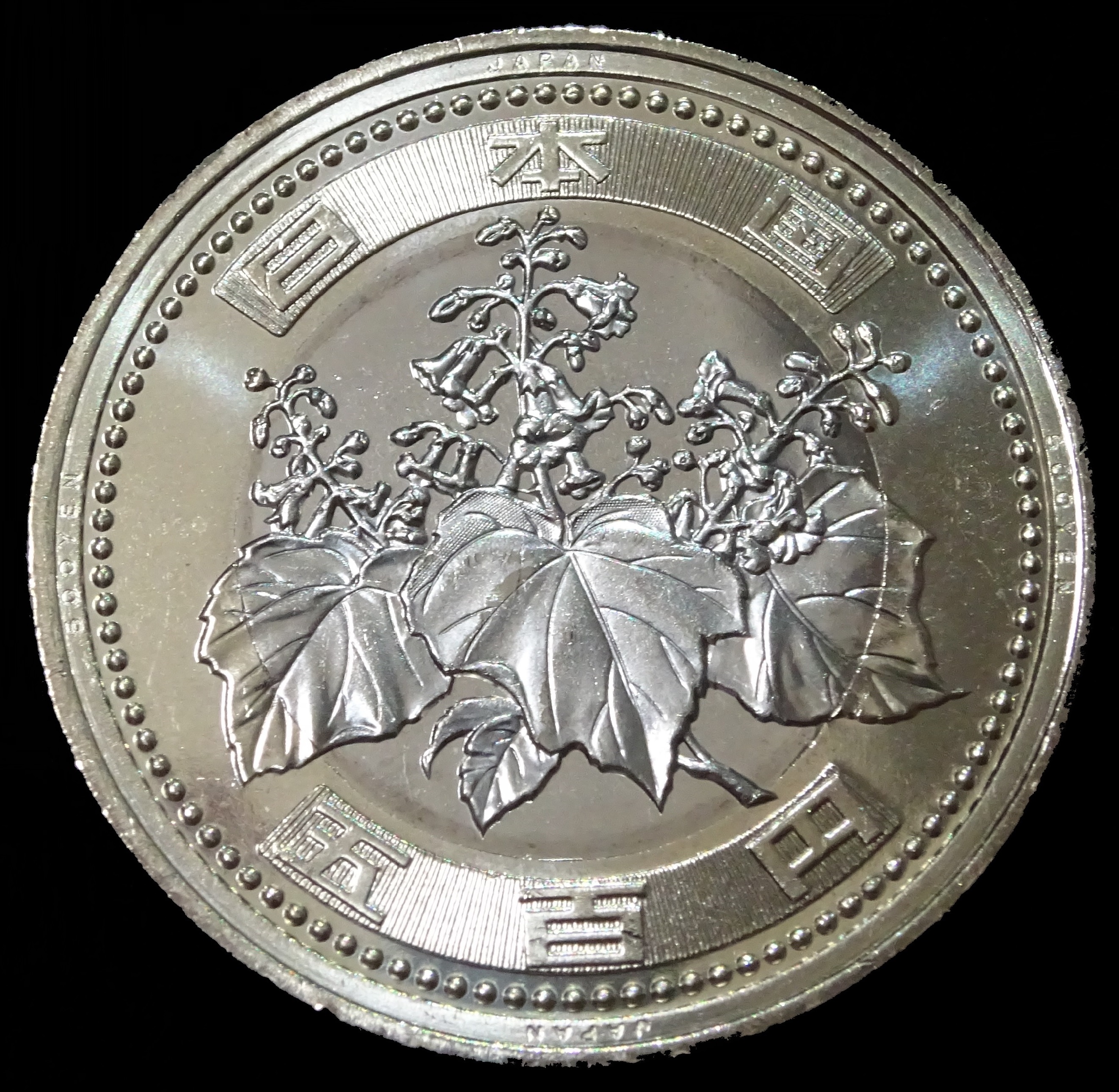
The Japanese Yen has depreciated by nearly 40% against the US Dollar (in 5 years), despite Japan selling a significant amount of US Treasury bonds (I’m assuming that it is to stabilise JPY) and recording a trade surplus of approximately $65 billion. What explains this?
Posted by u/[Deleted Account] - 36 votes and 26 commentsThe Japanese Yen has depreciated by nearly 40% against the US Dollar (in 5 years), despite Japan selling a significant amount of US Treasury bonds (I’m assuming that it is to stabilise JPY) and recording a trade surplus of approximately $65 billion. What explains this?It started with the US raising interest rates and the BoJ holding rates relatively low. This caused an interesting arbitrage opportunity where traders could borrow large amounts in Yen and exchange it in to USD to buy USD bonds.Keeping at low rate also killing YEN but slowly.

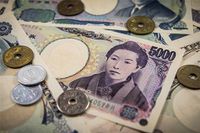
The Japanese yen declined in Asian trading on Friday against a basket of major and minor currencies, deepening its losses for the second consecutive session versus the US dollar, hitting a three-week low. The drop came as expectations of a US Federal Reserve rate cut in September receded.
Yen exchange rate today: The dollar rose more than 0.2% against the yen to ¥148.69, the highest since August 1, from an opening level of ¥148.37, after touching a low at ¥148.24.On Thursday, the yen ended down 0.7% against the dollar, its first loss in three days, after strong US economic data.So far this week, the yen is down about 1.1% versus the dollar, heading for a second loss in three weeks and its biggest weekly decline since early July.Failed megaprojects often lacked clear offtake, relied on unproven technologies, or pursued unrealistic scale. By contrast, today’s survivors are embedded in existing industrial demand, with clear economics.

El yen cae tras la dimisión del primer ministro japonés Ishiba, el dólar se tambalea
El yen cae tras la dimisión del primer ministro japonés Ishiba, el dólar se tambalea - LA NACIONEl yen caía con fuerza el lunes tras la dimisión del primer ministro japonés, Shigeru Ishiba, mientras que el dólar se mantenía en una posición inestable después de que el débil informe del viernes sobre el empleo en Estados Unidos cimentara las expectativas de un recorte de tipos de la Reserva Federal este mes.En respuesta, el yen se desplomaba en los mercados asiáticos y caía un 0,5% frente al dólar, situándose en 148,16, tras haber recortado algunas pérdidas durante la sesión.





